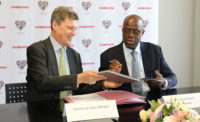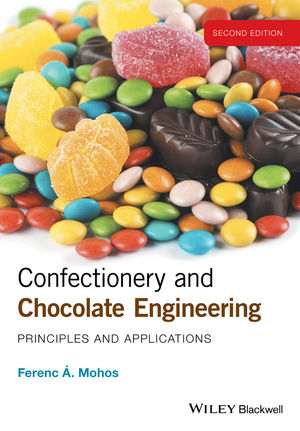Hershey expands sustainable efforts, company’s critics claim a victory






Hershey expands sustainable efforts, company’s critics claim a victory
The Hershey Co. has announced a slew of new sustainable farming initiatives, including plans to make its Hershey’s Bliss line with only certified products, and to invest $10 million in West Africa over the next five years.
The news comes after Hershey has spent the last few months as the target of the “Raise the Bar, Hershey Coalition,” which has attempted to highlight allegedly poor working conditions for cocoa farmers that supply Hershey.
Hershey would not say that this was a direct response to Raise the Bar, but Andy McCormick, v.p. of public affairs at Hershey Co., did say that Hershey always values consumer comments.
“In the 60s we had been already sending school teachers into West Africa, so in some ways this sustainability initiative has been a continuous effort,” says McCormick. “On the other hand, we listen and respect the consumer—even though certified chocolate is only a small part of the market, it is a growing sector that we want to be a part of.”
He added that the new programs are aimed at improving sustainability and increasing yields.
“The global market seems to be on the upswing, and cocoa has difficulty keeping up with demand,” says McCormick. “In West Africa in particular, the farmer has lagged behind, in terms of production, farmers in Latin America and other countries. We feel the approach we are taking will help address some of these problems.”
Specifically, Hershey is focusing on four areas:
- Launching a Hershey’s Bliss line made from certified products by the end of this year
- Expanding the CocoaLink mobile phone program to farmers in Ivory Coast
- Opening the Hershey Learn to Grow Farm and Family Development Center in Ghana
- Investing $10 million to reduce child labor and improve cocoa supply in West Africa by 2017
Raise the Bar — a group of cocoa advocates led by Global Exchange, Green America, and International Labor Rights Forum — has used a variety of methods to target Hershey.
Specifically, they launched a petition on Change.org, created “brand-jamming” photos and videos of Hershey products, blanketed the company’s Facebook wall in messages, organized rallies at Hershey flagship stores, and delivered more than 100,000 letters from concerned consumers to Hershey’s corporate headquarters on Halloween.
“The Raise the Bar, Hershey! Coalition is excited to see Hershey listening to consumer demand for ethically sourced cocoa,” says Elizabeth O’Connell, Fair Trade campaigns director for Green America, “but we also recognize there is much more work to be done to fight child labor and other abuses in the cocoa industry, and we will continue to encourage Hershey to develop ethical sourcing practices.”
By 2017, Hershey estimates its new programs will benefit 750,000 African cocoa farmers and more than two million people in cocoa communities across the region.
In addition to these initiatives, Hershey is a founding member of a public-private partnership involving the global cocoa and chocolate industry and the U.S. Department of Labor. The partnership has created a new Framework of Action to significantly reduce the worst forms of child labor in Ghana and the Ivory Coast by 2020.
For more information about Hershey Co., visit www.hersheys.com.
Looking for a reprint of this article?
From high-res PDFs to custom plaques, order your copy today!











